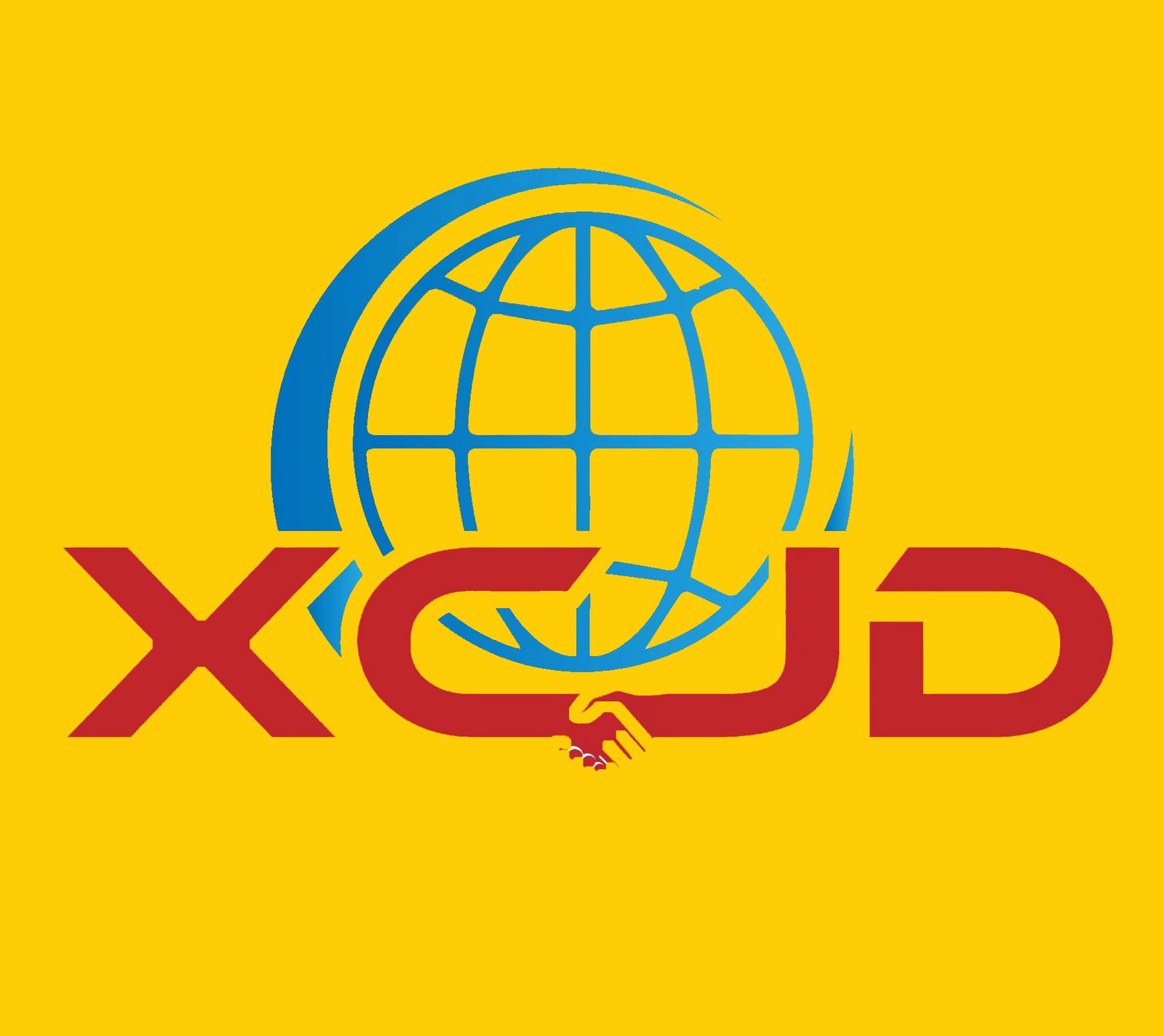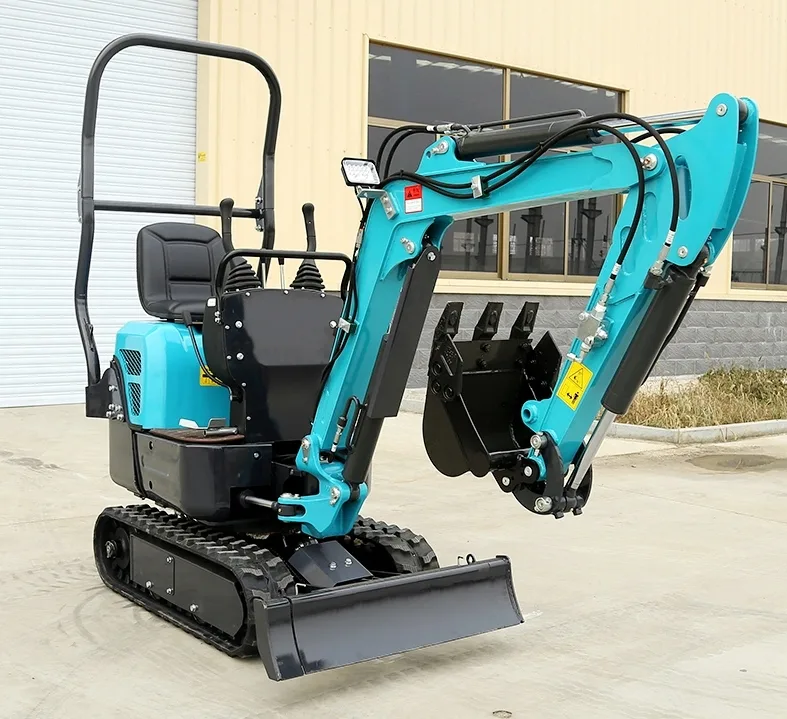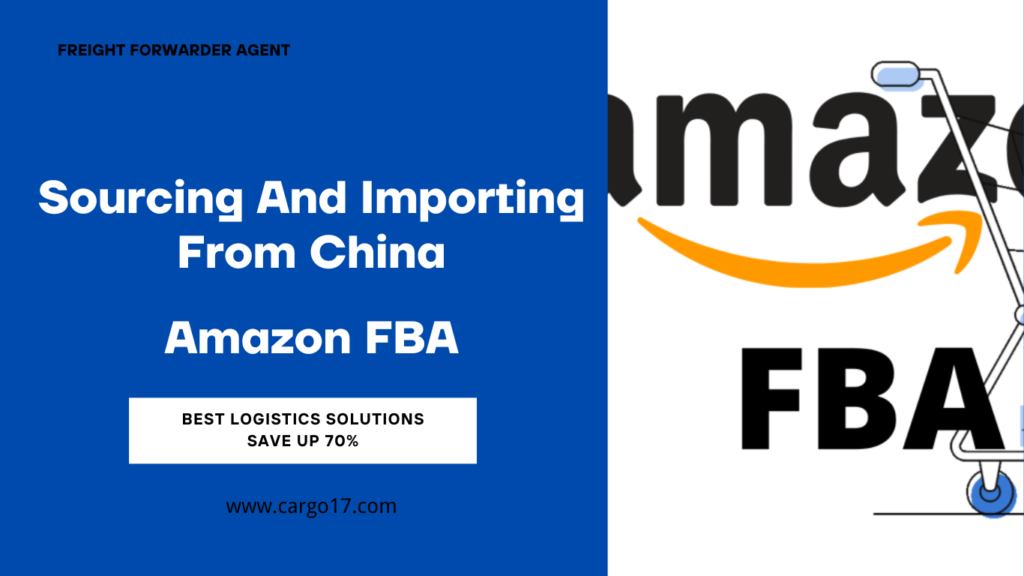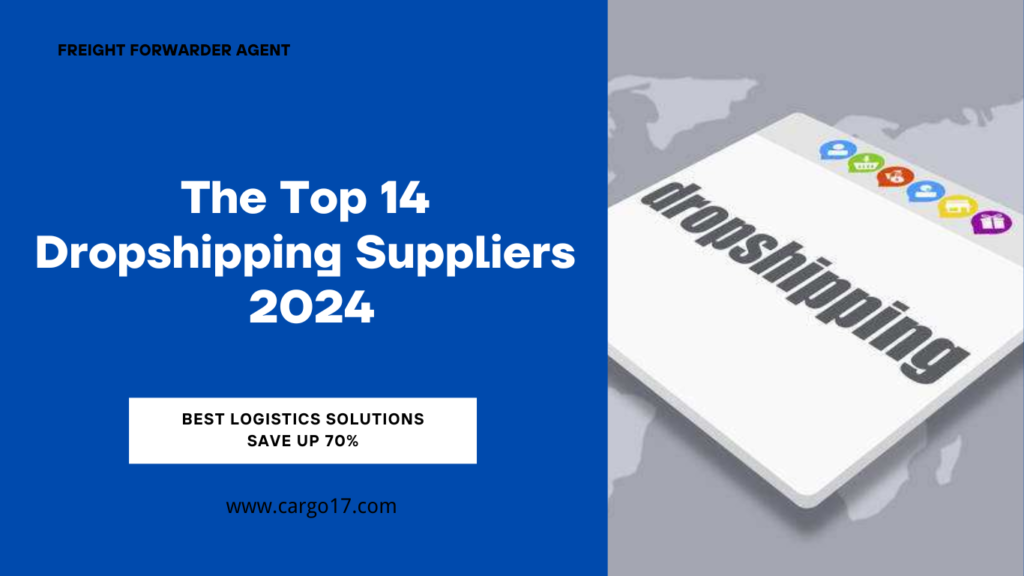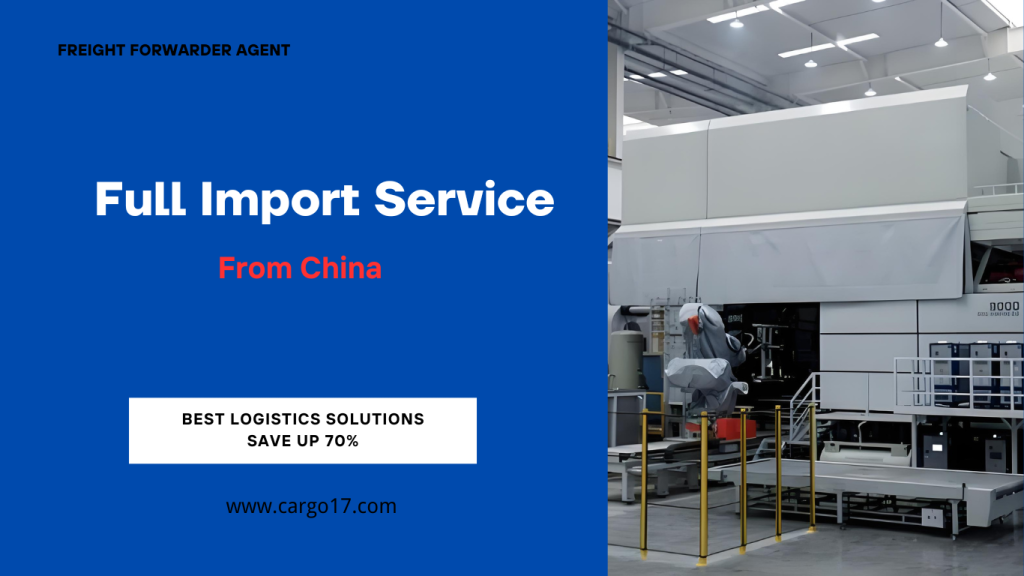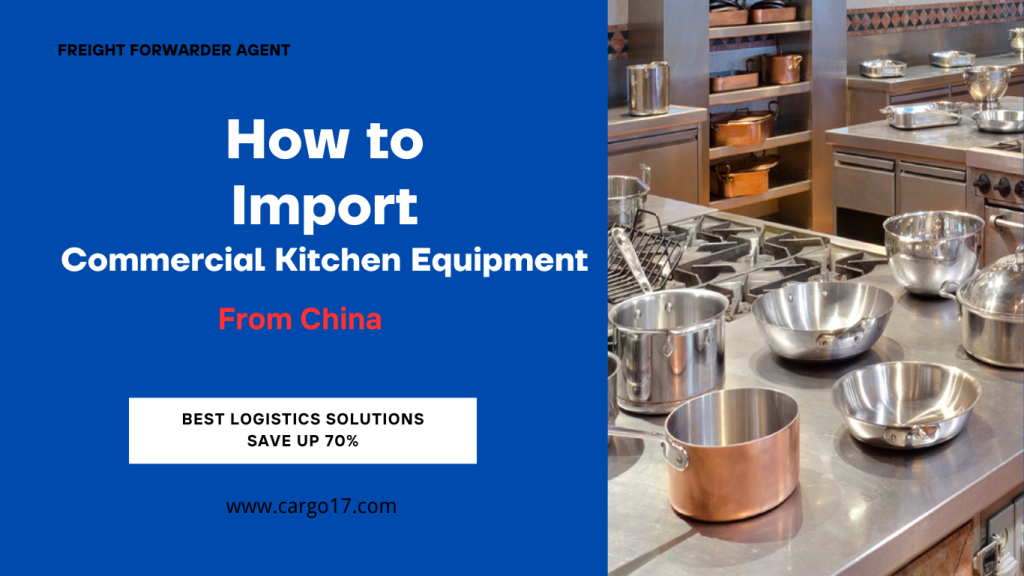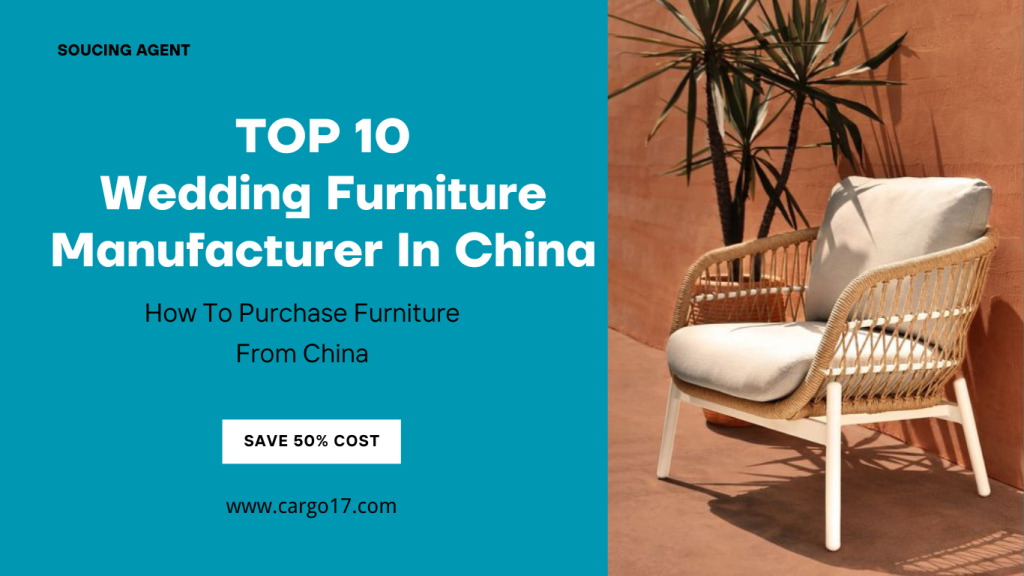
IMPORTING FROM CHINA
IS IMPORTING FROM CHINA PROFITABLE?
If you want to make a major chunk of profit by selling goods, then importing products from China is one of the best decisions you can ever take. It is no wonder that American company Apple and major brands in the world are reliant on Chinese factories for their profits. If you want to make profits just like the top brands are making, you need to first identify the products that you should be selling.
Carry out a thorough analysis of the products in demand in your country. It is pointless jumping into the trade if you are not sure of what to sell. Do a study or take help from experts in identifying the products you need to be selling. Once you are certain, contact Chinese factories selling the goods you are interested in. Take a quote from them and chalk out the plan. Then, choose a reliable freight forwarder in China who can assist you throughout.
A freight forwarder in China can manage the complex customs process involved in international trade. They will source the goods from the factories that have you have shortlisted and will pack and deliver them at your chosen address. They will ease your burden to a great extent. It is indeed profitable to import goods from China if you identify the products that hold immense sales potential in your region.
BENEFITS OF IMPORTING FROM CHINA
- High-profit margins
- Rare and unique goods made in the country
- Direct control over your business distribution model
- No special licenses and permits needed for purchasing goods from China
- Specialty products that are reasonably priced
- Promises immediate and long term profit
- Skilled and cheap manual labor
- Great supply chain ecosystem
- The country has adequate reserves of natural resources
INCOTERMS
While importing from China, it is essential to be aware of trade incoterms frequently used. This will help you identify which one would be the best for you while placing an order.
1. EXW (Ex Works)
Under this international trade agreement, the supplier is responsible for making goods ready for pick up. The buyer has to bear the liabilities and costs of shipment once that goods leave the seller’s place. The risk and cost of shipping goods from China are on the buyer. This implies that the buyer can have a clear idea of the costs that they would be incurring way ahead of placing an order with a seller. Also, the buyer has complete control over the shipment.
2. FOB (Free on Board)
Free on Board of FOB trade agreement specifies who needs to bear the liability for goods if they get damaged while in transit. If a trade agreement states the FOB shipping point, then it implies that the seller has to bear the risk of loss until the goods are shipped. FOB destination means that the seller has to bear the risk of loss until the goods reach the buyer. This term is usually used while sending goods in non-containerized inland waterway transport or sea freight.
3. Cost and Freight (C&F)
Cost and Freight refer to a legal term used in international trade. According to this rule, the seller does not have to get any marine insurance for the risk of damage or loss of goods while shipping them. As per this term, the seller is responsible for catering to the carriage of goods by sea to a port that has been mentioned by the buyer.
4. CIF (Cost, Insurance and Freight)
CIF is an international trade term that vests the responsibility on the supplier to manage the shipping of goods through the sea to the port of destination. The documents then have to be handed over to the buyer. European nations use CIF value for estimating the duties to be paid on import. XCJD manages all the above-mentioned trade incoterms while shipping goods from China. No matter what the term is we take of everything.
HOW TO BUY FROM CHINA?
If you want to import goods from China, the first thing you need to do is to identify goods for import. Do your groundwork, attend trade shows, rely on an expert, and decide what unique you can offer. Also, identify if there are any barriers to importing.
For instance, if you are importing goods to the US, make sure that the product complies with safety standards, carrier restrictions, or high custom duties. US customs would deny any entry of banned goods being imported from China. Make sure that the product complies with labeling and US safety standard requirements. Once you have done that, you can start contacting the suppliers.
Sourcing products: Find a supplier in China
Emailing is the best way you can communicate with any supplier while importing goods from China. In some cases, you will have to make use of Google Translate or any other tool for translating the responses from the sellers. There is no need to worry as most of the suppliers can communicate in English these days. Make sure to keep your emails short and straight to the point if you are expecting better replies. This will ensure an organized and clean communication with the seller.
Request for a quote
Minimal Order Quantities. This process is quite simple. However, it would barely take a couple of minutes to write an email. Make sure to ask them for Minimal Order Quantities (MOQ). Double-check if you can afford the MOQ. You can ask the supplier if he or she is willing to negotiate the minimums.
Pricing for a sample. Then ask for pricing for sample orders. You obviously need to request for samples to verify the quality of products. Ask them for the pricing of samples. Many suppliers offer samples at discounted rates.
Product pricing. Inquire the supplier about product pricing. Find out the cost per unit of the products you are planning to import. Suppliers usually mention a range. Make sure to ask them for the exact cost of each unit.
Production time. Production time plays a crucial role. It is vital to inquire how long will it take for a manufacturer to produce your batch. Time is critical for many businesses. The last thing you need to inquire is about the payment terms. Inventory adds up to a major chunk of expense for e-commerce startups.
Finding a supplier in China
Most of the importers can find suppliers on Alibaba. However, there are several alternatives available if you are eager to explore. Some of the businesses registered on the Alibaba platform are traders. Most of them are manufacturers. You can also find suppliers from China Import Export Fairs, Made in China, B2B platform, Global sources, canton fair and by directly looking for them through Google search. Reliable and reputed ones will have their websites up and running. You can go through their offerings from the website and also check testimonials from their clients.
Payment terms while importing from China
You can make a payment to suppliers in China through any of these preferred methods.
1. Wire transfer
This payment mode can be riskier for the buyer. If you choose this mode, then the supplier gets 30 percent as a deposit even before commencing the production of goods. The remaining amount can be paid just before the final delivery of goods. It is suggested to opt for this payment mode if you trust the supplier you are dealing with.
2.Letter of credit
This payment mode is relatively safer in comparison to direct wire transfer before the delivery of goods. The procedures involved in this mode are quite complex and mainly used for larger trade orders. If your import value is over $20, 000, then you can consider this payment mode.
- Western union
This is again riskier for the buyer. If payment is not being protected by escrow, this payment mode is not recommended. You should opt for this payment mode if you are dealing with a known supplier that you completely trust. This payment mode is used only for small sample order value.
- PayPal
This is a safer option. It is easy to use and also comes with a buyer protection feature. However, it is less popular among Chinese suppliers. This is because a lot of complexities are involved in withdrawing money and the associated high tax rates. - Secure Payment (Escrow on Alibaba)
This is a fairly safe option for a buyer. Doing this, the money given by a buyer is held by a third party and is released only when they confirm that they have received the order. This payment model offers protection to both buyers and sellers. This option is offered on wholesale orders.
Import duty and Taxes from China
While importing goods from China, you cannot do away with taxes and import duties. It is vital to understand port charges, import duties, value-added taxes, and others while importing goods from China. Each country has its own set of procedures when it comes to estimating importing duty rates. Let us consider the case of importing goods from china into any European nation. All European Union member countries impose the same duty rate while importing any goods from a non-EU country. Importers have to bear customs charges.
No import duties are added for products being sold in the European Union. The rate of import duty charged varies from one product to another. Goods that are not manufactured in the EU carry lower import duty rates. For instance, consumer electronics goods do not carry any import duty rates. The converse is also true. Shoes attract a duty rate of 12 percent.
Value Added Tax (VAT)
This tax is compulsorily charged on imports. Different member nations impose different Value Added Tax rates. This is charged in addition to customs and duty. EU customs value is determined by the CIF price of the goods being imported from China.
In most of the cases, import duty is estimated as a percentage of the customs value of the import. The value varies from one country to another and also depends on the product classification. In some nations, the customs value is dependent on the FOB value. The sales tax is also estimated as a percentage of the customs and the duty value paid. Some countries have a standard sales tax rate.
Testing the samples from the seller
If a sample has been shipped to you via air freight, then it will reach you in three to ten business days based on your destination. If shipped via sea, then it will take over 15 to 45 days to reach you. Once you have the samples with you, make sure to inspect the quality of the product, quality of packaging, instructions, and labeling.
Inspecting the quality
Check if the product lives up to the quality that you expect. Use the item and sees if it lives up to your expectations.
Packaging
See if the quality of the packaging is decent enough to be shipped to your customers. If the items are being lumped into a single container, then make sure to request the supplier to box them.
Instructions
Check if the goods come with proper instructions. If the goods have no instructions, then make sure to create and include them with your goods. You can also place a request with the supplier.
Labeling
Is there any label anywhere on the product or packaging about the goods being made in China? If not, then make sure that this is included. You need to pay special attention to how goods are being labeled.
THINGS YOU NEED TO CONSIDER WHILE PLACING AN ORDER
You have to check how the goods that you are importing are being labeled. Most countries have specific rules about how a product needs to be labeled. A label should carry information about the manufacturing company, order size, product information and instructions.
Some labeling requirements are the same for all products. For instance, in the United States, it is essential to label the country of origin on all the products being sold. There are unique labeling requirements based on the product as well. Technical compliance is also an essential thing to consider. The product has to be manufactured as per the technical standards. Check into the document requirements. It can include risk assessment, component lists, design drawings, and circuit diagrams.
ARRANGING THIRD-PARTY INSPECTIONS
If you are particular about inspecting orders before they are shipped, then you can hire a third-party to do the inspection for you. You can hire reputed third party companies such as PONY, CCIC, Intertek, and SGS to perform quality inspections on your behalf.
State your expectations clearly
While placing an order, make sure to convey what you want to a supplier. Instead of waiting and then conveying, make sure to do this before the production commences. If you delay, then there is no point conveying the information once the supplier has started packing the finished goods. State your expectations as well as the product requirements clearly. This should be done before releasing a purchase order. Signing a purchase agreement with all the terms clearly mentioned can be a great idea. This information can then be used by the third-party while carrying out inspections. Mention the shipping deadline and consequences of not meeting the requirements. Having a legal recourse makes the supplier accountable for their offerings.
Carrying out inspections
Hire a third party to visit the factory and inspect the goods that you are shipping from China. Inspection can be carried out during different stages of production. For instance, if you have placed an order for manufacturing upholsteries, then you can have the quality inspections done at the initial stage; you can check the structural integrity and check the dimensions.
Sort out issues with the supplier if there are any
If the report obtained from third-party inspector hints of any defects in the process, you need to communicate with the supplier right away. You can request them to replace the defective items or ask them to rework.
Communicate with the supplier and find out how they would fix the issue. If there is any issue pertaining to injection molding, then you can request them to trim the extra material by hand. Additional handling can result in further damage if care is not exercised during the process. Hence, it is essential to work out the problem with proper communication with the supplier.
Re-inspection for ascertaining rework
This provides added assurance that the defects have been resolved in your product that caused any concern to you earlier. You can still take corrective actions if the quality is not as per your liking. Doing this can save you a lot of money. Selling products that don’t live up to the expectations of the customers will only damage your reputation.
WHAT TO DO AFTER RECEIVING IMPORTED GOODS?
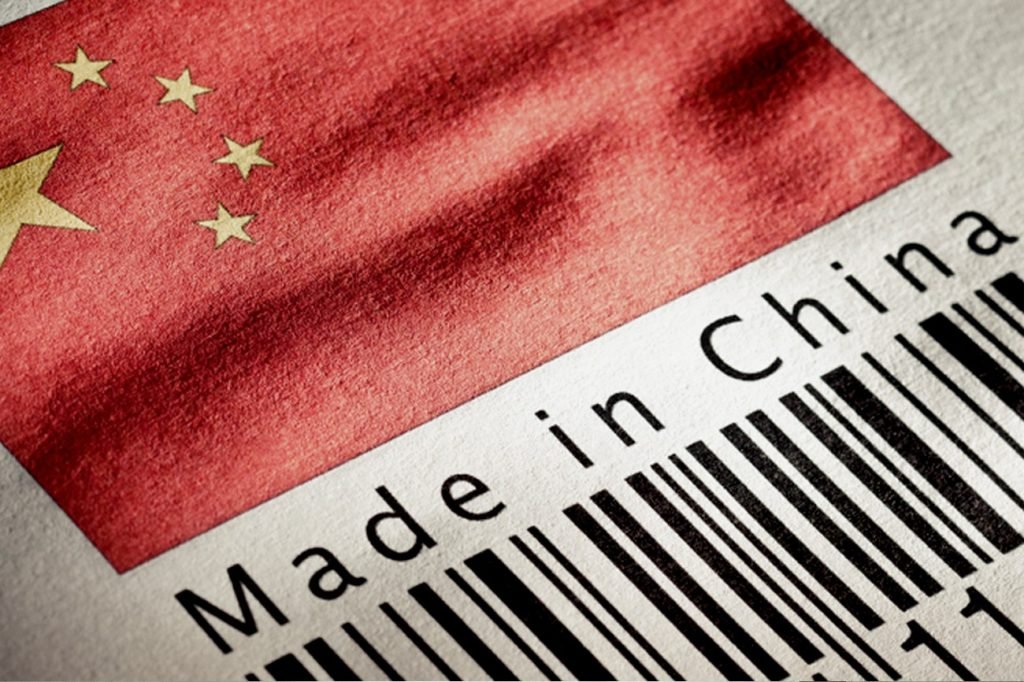
Once you have received your goods from a manufacturer, you need to make sure to check the quality, labels, instructions, and packaging. You can send an email to the supplier after receiving your goods. You can review the product and also offer them feedback to consider during the next shipment.
WHAT ARE THE GOODS MOST COMMONLY IMPORTED FROM CHINA?
China shipped over US$2.499 trillion worth of goods all over the world in the previous year. As per the latest data available, over 60.2 percent of goods were imported from the country by the United States. Hong Kong shipped 11.2 percent of the total goods imported by the country. About half of China’s exports were delivered to neighboring Asian countries.
Here are the top 10 products imported by China.
- Machinery including computers
- Lighting, bedding, furniture
- Plastics and plastic articles
- Vehicles
- Toys and games
- Clothing and accessories
- Articles of steel and iron
- Optical and medical apparatus
Toys and games have emerged as the fasted growing segment if we look at the goods being imported from China. There is also an increase in the shipment of plastic, iron and steel articles.
IMPORTING FROM CHINA BY AIR, SEA, RAIL AND EXPRESS SHIPMENT
There are numerous costs associated while shipping goods from a different country. Freight shipment adds a lot. It includes packing, container fees, and terminal handling. In order to get a clear picture of what costs you are incurring, you need to request for freight quite from the freight forwarder. Once you are happy with the quote, you can proceed with the shipment transportation. The main modes of shipment of imported goods from China include:
Sea freight
There are numerous advantages of opting for sea freight. It is a cost-effective form of transport and is crucial for operations and supply chain management for a global chain. Heavy goods can be easily shipped overseas because of large storage capacities. Moreover, it is the most environmentally friendly form of transport.
Air freight
Airfreight refers implies to an airport to airport service. It is not a “door to door” service. You are solely responsible for collecting the goods once they have cleared the customs at the delivery airport chosen by you. This is the quickest means of shipping your goods from China. But, it is quite costly.
Rail Freight
Rail freight involves the use of railroads and trains for transporting goods from one place to another. If you opt for this method while shipping goods from China, then the goods would be boarded on a cargo train by the logistics company and will be shipped to the intended destination. Trains can easily carry bulk materials in large quantities over long distances.
Courier Service/ Express Shipment
A courier is referred to as an express or ‘door to door service’. Here the company sends goods from your suppliers to the delivery address chosen by you. The freight forwarder manages all the aspects of transporting goods from one point to another. This includes local pickup, packaging, customs clearance, payment of taxes, and duties. TNT, UPS, FedEx, and DHL are the popular courier companies operating from China. It is quicker in comparison to rail and sea shipping. However, there are limitations associated with parcel weight in this mode of shipping.
No matter which mode of shipment you choose, it is vital to make sure to rely on a trusted and reputed freight forwarder. This will ensure that your goods are transported securely after going through all the mandatory customs procedures. XCJD Global Logistics is a reliable freight forwarder in China with a decade of experience. We have successfully managed several shipments all over the worldwide. We understand that logistics is a highly valued aspect of any international business. Get in touch with us and we will explain the entire process to you.
TIPS TO FOLLOW WHILE IMPORTING FROM CHINA

Shipping from China is not an easy process. The country has complex procedures with dramatic growth in trade activities over the past few decades. Chinese goods have received wide acceptance all over the world. Shipping from China can be easy if you know how to ship successfully. Here are some tips to consider while importing goods from factories in China.
- Get quotes from different suppliers and choose a product as per your satisfaction
- Do quality inspections or request for a sample
- Choose a reliable freight forwarder as they manage a lot on your behalf
- Use appropriate packaging for your goods
- Get insurance for your goods
- Choose the right incoterms as these will help you manage costs, liabilities, and risks involved in international trade
- Consolidate all your shipments
- Build a lasting relationship with a reliable freight forwarder in China.
- Make good use of free warehousing facilities provided by a few freight forwarders as it is quite expensive. XCJD Global Logistics offer 30-60 days of free warehouse service to its clients.
- Let freight forwarders manage the inventory for you
- Ship during off-peak and try to avoid short notice shipping as it is quite expensive
FAQS
1. Why import from China?
It is no wonder why China has emerged as a leading manufacturer in the world.
- Offers tangible and innovative products
- High-profit margins for businesses importing goods from factories in China
- Easy to import as there is a strong and wide network of global freight forwarders operating from the major ports
- No need to travel all the way to China to find products. You can request for samples and they will be delivered to your doorstep
2. How to find great suppliers?
If quality is your main concern, then make sure to connect to suppliers from popular platforms such as
- Aliexpress/Alibaba
- Trade shows
- Canton fair
- Global Sources
- Referrals
Relying on dependable platforms ensure that you are connecting with just the right suppliers who have established a reputation with their quality services.
3. How to make payments to Chinese suppliers?
Most of the sellers in China prefer payment for goods purchased from them through wire transfer. A few sellers accept payment through PayPal. However, it is not accepted for large orders.
4. How to make sure to receive only high-quality products?
If your biggest concern while importing from China is the quality of the product, then make sure to communicate well with the supplier.
- Define what a quality product means to you
- Inspect the shipments at different stages of production
- Hire a third-party in China for inspecting the quality of goods you have requested
5. Can I request a sample before placing an order with a manufacturer?
Yes! We ship samples from the factories that you are interested in collaborating with. We provide express delivery of samples that you have chosen. These are delivered within a week so that you can verify the quality and take quick decisions.
6. Who is responsible for taking care of the shipping costs?
The responsibility is defined by the incoterms governing your trade. It is either you or the manufacturer you have chosen who has to bear the shipping costs. You can negotiate with the seller to determine the incoterms and make the most out of the business transaction. We at XCJD Logistics provide various shipping modes from China. You can opt for sea, rail and air freight based on your requirements. We also provide expedited shipping throughout the world. We team up with reliable partners to provide courier service as well.
7. Do you follow proper customs procedures?
Our professional team is well-versed in managing all the customs procedures. We make sure that the procedures are followed as per the law so that we can quickly ship your goods to your chosen address.
8. Should I opt for product liability insurance?
Investing in product liability insurance can help you cover the losses if there are any in the goods delivered to you by a seller. Make sure to discuss this with the manufacturer. Further, freight insurance can cover any damage to your goods during transit.
